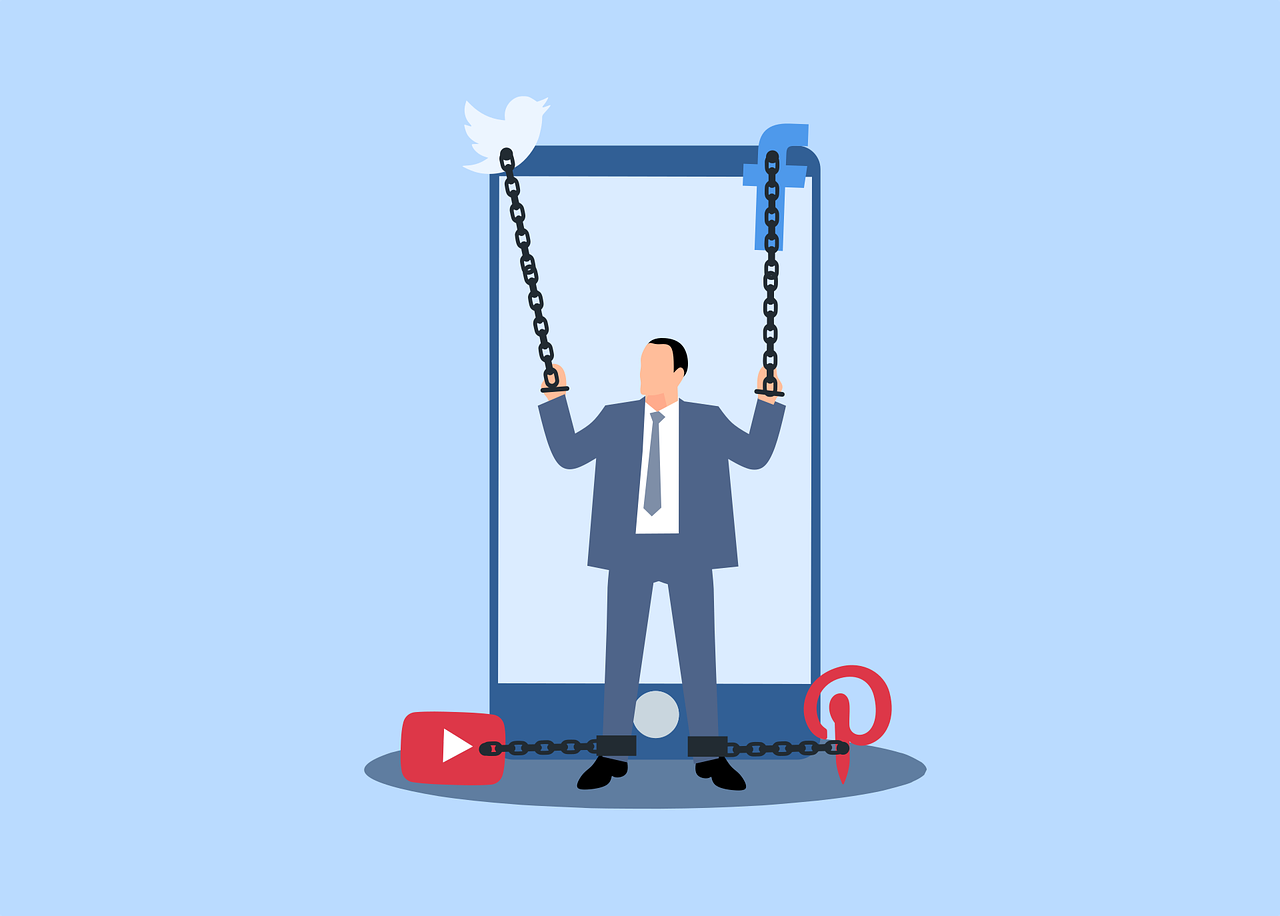Digital media encompasses almost every aspect of our lives. It is on our screens at home while we’re on the couch trying to relax and in our pockets when we’re out, ready at a moment’s notice to bombard us with endless content and stimulation.
Becoming addicted to devices and generally having an overly digital lifestyle is something that is becoming increasingly common. A study in China conducted in 2020 showed that 36.7% of the population was addicted to screens. In the US, a 2022 study revealed that this number was higher, with 48% of respondents admitting to digital addiction.
This addiction to screens ranges from playing video games to being on social media. Still, it can all be categorized as an addiction to digital media and the devices that provide access. Along with this addiction come widely publicized effects, alongside some unspoken ones that are just as severe.
Impaired Cognitive Control and Function
One of the most detrimental effects of digital addiction is the effect it has on one’s brain and, in turn, cognitive control. Research into the impact of digital addiction has shown that those who perform multiple media tasks show signs of reduced grey matter density in their brains.
This density reduction has been found to occur in the anterior cingulate cortex, an area long associated with cognitive control. Due to this, those suffering from digital addictions may find themselves with reduced mental ability.
Another effect associated with the same area of the brain is attention. Aside from impaired cognitive function, sufferers of digital overuse may find it difficult to concentrate on a single task for long periods.
Emotional Changes
Aside from the effects on cognition and attention, people who are addicted to social media suffer from emotional effects, too. A study on excessive social media use revealed that participants showed inhibited social competence and displayed lower levels of emotional intelligence.
This effect is referred to as emotional dysregulation and explains when a person doesn’t respond to an emotional situation in a manner that would commonly be expected. As such, a person suffering in this way may show emotions in an unhealthy manner or have a challenging time sharing their emotions.
The primary cause of emotional dysregulation is the various other consequences stemming from spending too much time on social media. These effects include comparing oneself to others, being exposed to negative imagery or content, and having a feeling of not being included (also referred to as FOMO—the fear of missing out).
Lifestyle Dictation
Digital addiction can also present specific physical and social effects. One of the leading causes of this is the adoption of a sedentary lifestyle. This occurs when a person would rather spend time behind a screen than doing things with others in real life.
The dictation of a sedentary lifestyle, which naturally leads to sitting for extended periods, has many subsequent effects. The most severe of these is premature mortality, while less serious effects could include cardiovascular diseases, obesity, and other health concerns.
Other physical effects include an inability to get a proper night’s sleep due to the blue light on many backlit devices and a syndrome called text neck. Text neck is caused by bending one’s neck to look at a smartphone or device, which can lead to neck pain and other musculoskeletal issues.
Additional effects of a sedentary lifestyle include prioritizing digital connections over self-care.
Social Challenges
Linking back to the emotional and physical effects, social challenges are also common among those suffering from digital addictions. The most prominent social effects are reduced social skills and the inability to engage with others face-to-face.
The lowered emotional intelligence among these individuals can also lead to a decrease in empathy, active listening, and verbal communication—though nonverbal communication can also decline.
Excessive digital usage affects personal relationships with friends and family. Distractions caused by devices can strain relationships and lead to misunderstandings. Research on this effect in couples shows that when one partner suffers from digital addiction, they report less relationship satisfaction.
With diminished relationships, many with a digital addiction may also turn online to find social interactions. In many cases, these could be the wrong kind in the form of cyberbullying or even harassment. Studies have conclusively shown how these types of interactions can lead to an increase in anxiety, depression, and, in severe cases, suicide.
Identity Confusion
Also contributed to by the social and emotional changes caused by a digital addiction is confusion over a person’s identity. With online spaces allowing somebody to become almost anyone they want to be, many portray an idealized lifestyle far removed from reality.
Spending too much time living within these online profiles and spaces can cause a disconnect from someone’s real identity and confuse them about who they are. This confusion can also lead to depression and a feeling of not knowing who one truly is.
Financial Challenges
One of the last prominent unspoken effects is neither physical nor social nor mental. Instead, it is the financial effects that those suffering from digital addictions may incur, particularly in persons who are addicted to video games or online gambling.
Many online games feature in-game purchases that help players level up or gain access to items otherwise locked. Addicts may feel the need to purchase these games without any regard to whether they can comfortably afford them.
Likewise, those who enjoy online gambling may spend and lose more money than they can afford. However, rather than visiting sites that solely offer a just for fun experience, addicted persons may find it difficult to stop playing.
Conclusion
Digital addiction is becoming increasingly prevalent today. With a wide range of effects that are both blatant and sometimes hidden, the need to educate oneself on the dangers of such addictions and how to treat them is becoming increasingly important.
Doing so can prevent one from becoming subject to the adverse effects mentioned above. Avoiding these can lead to a lifestyle that still embraces the digital media that surrounds us but also knows where to place boundaries.





